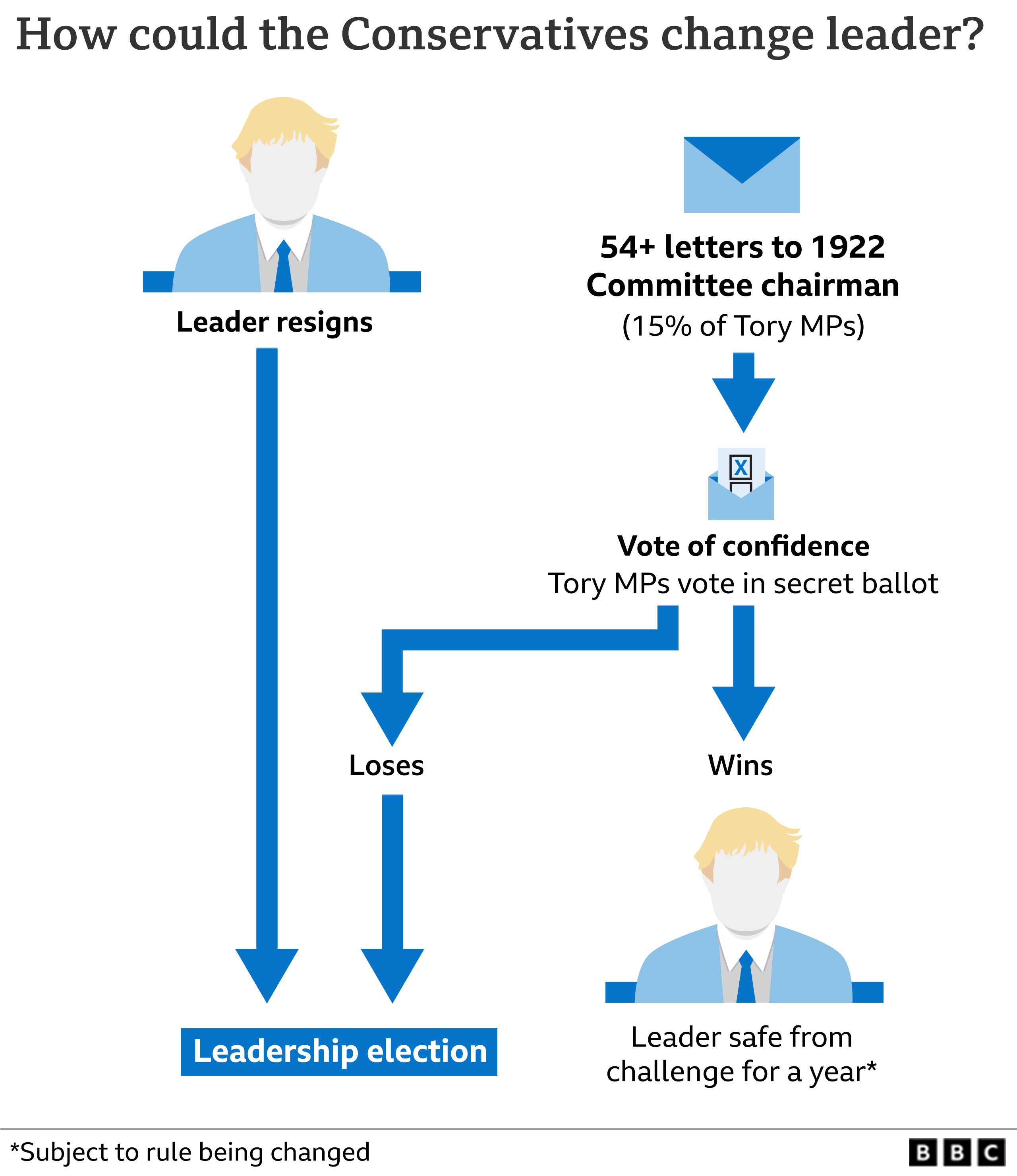At time of writing, a vote of no-confidence in Boris Johnson is due to happen on the evening of 2022-06-06 between 1800 and 2000, as more than 54 letters (15% of all Conservative MPs) have been received by the chair of the 1922 committee. The BBC 'live updates' page notes that: "If Johnson loses, he will be forced to stand down as prime minister and the Conservatives will choose a new leader". What 'forces' him to do so?
A brief summary of the process of Conservative leadership change procedure is also listed over at the BBC News website. The article includes a helpful image:
The current rules on Conservative leadership elections don't actually seem to indicate what happens in the "loses" outcome of the infographic, just that:
The current rules for electing the leader of the Conservative Party were introduced in 1998. A leadership contest can be triggered in two ways:
• If 15% of Conservative MPs write to the Chairman of the 1922 Committee saying they no longer have confidence in the leader of the Conservative Party, or
• if the current leader resigns.
I assume that what happens in such an eventuality is spelt out elsewhere.
There is an 'expectation' that someone who loses the party leadership would resign, as "the leader of the party that wins the most seats at a general election"; and "Prime Ministers hold office unless and until they resign" (PDF, page 21, section 2.8). Further parts of section 2 confirm "it is a matter for the Prime Minister... to judge the appropriate time at which to resign".
So, losing party leadership isn't like being fired from a job and escorted out by building security! Hypothetically, a Conservative Prime Minister could lose a leadership confidence vote, but refuse to resign as Prime Minister. Is there convention, written guidance, formal procedures, case law, or legislation which would determine or guide what would happen next? I appreciate that there is always the option of Parliament passing a motion, 'this House has no confidence in Her Majesty’s Government' (section 2.19 in linked PDF) which would mean a general election would take place after 14 days, though this is a catch-all rather than a procedure to handle a hypothetical intransigent PM who refuses to resign.
